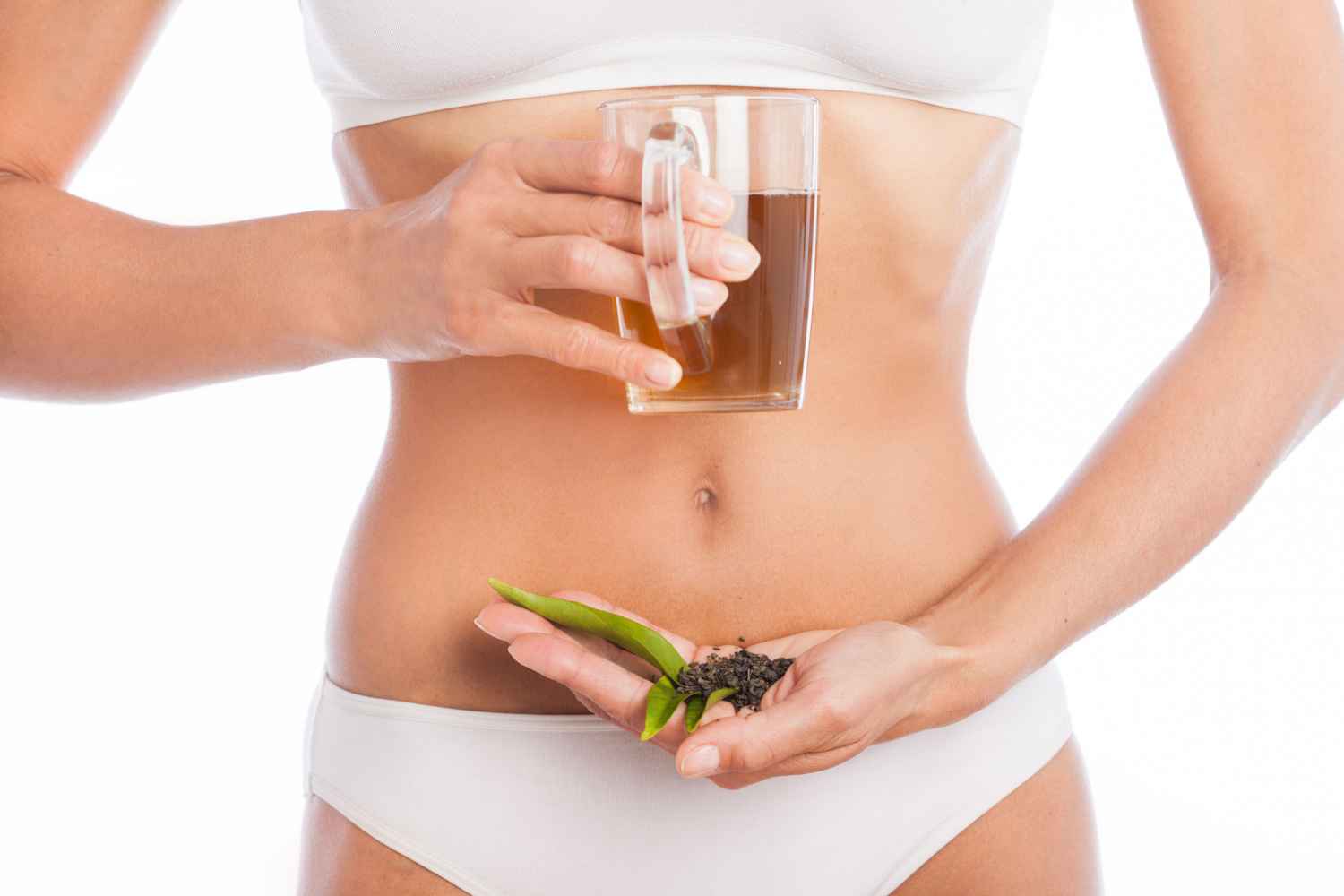
Tea is undoubtedly one of the oldest and most popular beverages in the world. Since its discovery in China in 2737 BCE, it has expanded its ways to breakfast tables all over the world. Green is a special type of tea that is known for its therapeutic uses and fertility benefits. Can green tea help you conceive? Well, this has been a question of debate. Let’s know why.
To understand whether green tea can help you to conceive or not you need to know the relationship between green tea and fertility. You also need to know why green tea is different and better than other energy drinks. This article will let you know the effects of green tea on female as well as male fertility. You will also get to know how much green tea is safe for your health. So what are you waiting for?
In This Article
- Video – Green Tea For Fertility
- Understanding The Connection Between Green Tea And Fertility
- Green Tea’s Effect on Ovulation And Menstrual Health
- Influence of Green Tea on Sperm Quality and Male Fertility
- Finding The Right Balance-How Much Green Tea is Safe?
- FAQ’s
Video – Green Tea For Fertility
Understanding The Connection Between Green Tea And Fertility
We get green tea from the Camellia sinensis variant of tea leaves and buds. The liquor of green tea gets its richness of antioxidants and its significant green color because of its minimal oxidation process.
Drinking a cup or two of green tea without sugar will increase your body’s metabolism. Metabolism enables your body to burn more fats and keep you fit. And you know that body fat is the biggest enemy of fertility.
PCOS is another huge problem against fertility that almost 5.8 to 10% of women are dealing with as a report by NCBI suggests (1).
The antioxidants of green tea prevent the building up of unwanted cells like cysts, tumors, and cancerous cells in the body by eliminating free radicals.
Moderate consumption of green tea also benefits male fertility (2) and may help maintain good sperm count, sperm health, and mobility (3).
But green tea also contains caffeine and catechins, excess consumption of which may affect fertility. Thus, to get only the benefits and not the side effects of green tea, you need to take it in limited quantities.
Green Tea’s Effect on Ovulation And Menstrual Health

Moderate drinking of green tea has some therapeutic effects on female ovulation and menstrual health (3A). The rich antioxidants like EGCG (epigallocatechin gallate) present in green tea help in making the body of the aspiring mother a suitable breeding place for her baby.
The effects of green tea on female fertility, ovulation, and menstrual health are;
1. Reduces Uterine Fibroids
Uterine fibroids do not directly impact your fertility but indirectly cause lots of trouble in the reproductive age (4). Heavy menstrual bleeding, pain, constipation, and frequent urination are some of them. If the size of the fibroid is too large it can impact the position of the baby and their free movement inside the uterus.
The antifibrotic property of green tea reduces the size and growth of uterine fibroids (5).
2. Cures Endometriosis
Endometriosis or the building up of tissues outside the uterus causes pain during sex, bowel movement, and even urination in women (6). EGCG present in green tea can also effectively reduce such endometrial lesions (7).
3. Improves Egg Quality And Ovulation Time
Green tea may the female gamete quality and timely production. Release of a mature egg or ovulation in proper time is the most important thing to ensure successful conception.
4. Helps in Timely Menstruation
Drinking green tea in lukewarm water in the morning and evening can reduce your period cramps and pain (8).
Green tea helps in the smooth and speedy flow of period blood and hence reduces prolonged period days. Being close to the ideal menstrual cycle i.e. 28 days will help you to predict your fertility days to increase your chance of pregnancy. Hence moderate consumption of green tea can improve female fertility through multiple ways.
Influence of Green Tea on Sperm Quality and Male Fertility

A report published in NCBI shows the positive impact of green tea extracts on sperm quality and motility in male rats (9). There is not enough research on the impact of green tea on human sperm and its quality.
Yet some of the possible influences of green tea on sperm quality and male fertility can be
a. Improves Sperm Count And Motility
Green tea may have positive impacts on blood circulation. Its antioxidant property helps in increasing sperm count and motility by protecting sperm and decreasing internal inflammation. Timely blood circulation to the testes and penis, a significant number of healthy sperms, and a smooth passage for them to release are important to be fertile.
b. Reduces Oxidative Stress
Oxidative stress, a condition where the excess of free radicals overdo the body’s antioxidants, can damage the sperm DNA. This can lead to an unsuccessful pregnancy, miscarriage, and even cancer (10). To prevent this you need to have food rich in antioxidants and green tea is one of them.
c. Balances Hormonal Levels
Proper balance of hormones is equally important for male fertility just like it is for females. Green tea has regulatory effects on the male reproductive hormone, testosterone which is essential for the timely production of mature sperms.
d. Provides You Energy
The caffeine present in green tea provides instant energy, a thing that you need after a stressful day to perform, you know where.
Thus green tea has various beneficiary qualities to offer when it comes to male fertility.
Finding The Right Balance-How Much Green Tea is Safe?

While green tea has many benefits to offer, it’s important to know how much of it is safe for you. Green tea, though much less than coffee or even plain tea, contains caffeine.
- Overconsumption of caffeine has adverse effects like insomnia, high blood pressure and heart rate, nerve disorder, dehydration, and addiction (11).
- Taking green tea for a prolonged period can also reduce folic acid in your body. This can lead to fertility and pregnancy problems including birth defects (12).
- According to another report by the EFSA journal, the safe consumption of caffeine is 400 mg per day (13). So you should not exceed 3 to 4 cups of green in a day .
- However, as the caffeine content may differ according to different brands, it will be safe for you to take not more than 2 cups of green tea per day. You can also try the decaffeinated version of green tea which contains much less caffeine than regular green tea.
To conclude, it can be said that green tea has much goodness to offer in comparison to regular tea or coffee. You can include green tea in your fertility diet to improve your cell metabolism, hormonal balance, and production of eggs or sperm. But do not exceed the limits as then it will adversely affect your health. You can consult with your fertility specialist too for the safe intake of green tea.
FAQ’s
1. Should Individuals With Allergies or Sensitivities be Cautious With Green Tea?
Yes, if you have caffeine sensitivity or allergic tendency then be cautious with green tea. Drinking green tea or applying green tea extracts on the skin can result in skin irritability, rashes, and digestive problems in some people due to the presence of caffeine and catechins in it.
2. Can Green Tea be Part of an Overall Fertility-Boosting Diet?
Yes, green tea can be a part of your regular fertility-boosting diet. The EGCG antioxidant of green tea specifically benefits fertility health by reducing free radicals, PCOS, and inflammation.
References
- Prevalence of Polycystic Ovarian Syndrome in India: A Systematic Review and Meta-Analysis – [https://www.ncbi.nlm.nih.gov/pmc/articles/PMC9826643/]
- Beneficial Effects of Green Tea Catechins on Female Reproductive Disorders: A Review – [https://www.mdpi.com/1420-3049/26/9/2675]
- Therapeutic Role of Green Tea Polyphenols in Improving Fertility: A Review – [https:/ -www.ncbi.nlm.nih.gov/pmc/articles/PMC6073549/]
- Uterine fibroids | Nature Reviews Disease Primers – [https://www.nature.com/articles/nrdp201643]
- Epigallocatechin Gallate (EGCG) For Treatment Of Unexplained Infertility Associated With Uterine Fibroids (PRE-FRIEND TRIAL): Early Safety Assessment – Fertility and Sterility – [https://www.fertstert.org/article/S0015-0282(21)01456-4/fulltext]
- Endometriosis: Epidemiology, Diagnosis and Clinical Managementhttps://www.ncbi.nlm.nih.gov/pmc/articles/PMC5737931/
- Green Tea and Benign Gynecologic Disorders: A New Trick for An Old Beverage? – [https://www.ncbi.nlm.nih.gov/pmc/articles/PMC10054707/]
- Association of tea drinking and dysmenorrhoea among reproductive-age women in Shanghai, China (2013–2015): a cross-sectional study – [https://www.ncbi.nlm.nih.gov/pmc/articles/PMC6500245/]
- Green tea improves rat sperm quality and reduced cadmium chloride damage effect in spermatogenesis cycle – PMC – [https://www.ncbi.nlm.nih.gov/pmc/articles/PMC6418325/]
- Sperm DNA fragmentation and idiopathic recurrent pregnancy loss: Results from a multicenter case-control study – PubMed – [https://pubmed.ncbi.nlm.nih.gov/36693210/]
- Caffeine: Cognitive and Physical Performance Enhancer or Psychoactive Drug? – [https://www.ncbi.nlm.nih.gov/pmc/articles/PMC4462044/]
- Probable benefits of green tea with genetic implications – PMC – [https://www.ncbi.nlm.nih.gov/pmc/articles/PMC5406788/]
- Scientific Opinion on the safety of caffeine – – 2015 – EFSA Journal – Wiley Online Library – [https://efsa.onlinelibrary.wiley.com/doi/abs/10.2903/j.efsa.2015.4102]

